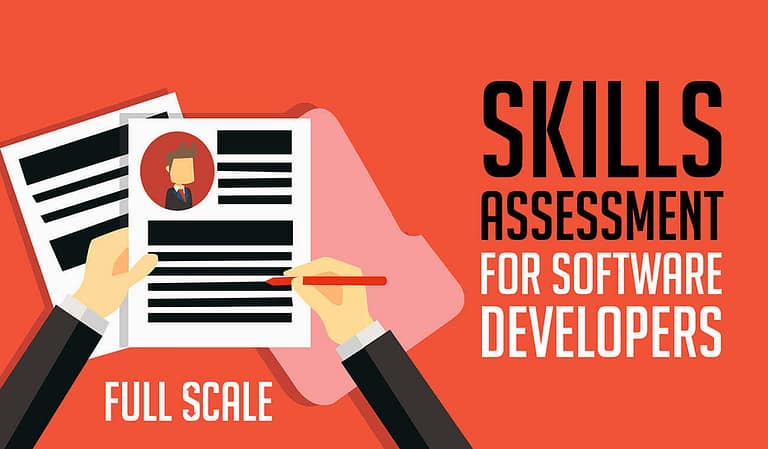To build winning teams, organizations need objective, data-driven insights into people’s real capabilities. That’s where skill assessment software comes in—offering a smarter, faster, and fairer way to evaluate talent.
In this article, we’ll explain what this tool is, why it matters, and what features to look for before choosing a platform.
What is a Skill Assessment Software?
Candidate hiring tools have seen a dramatic surge in adoption in recent years. According to PR Newswire, the global skills assessment market was valued at $2.3 billion in 2022 and is expected to reach $7.4 billion by 2032.
Must Read: https://tododisca.com/
So, what’s driving this rapid growth?
Well, at its core, skill assessment tools are digital platforms that measure what candidates and employees can actually do — not just what they say they can do. It’s like an X-ray for skills: invisible strengths and weaknesses are suddenly made visible.
But it’s not a one-size-fits-all tool. These platforms assess a broad range of abilities, including:
- Technical skills: Can your developer write clean, efficient code? Can your marketer run a real Google Ads campaign?
- Cognitive skills: How sharp is their problem-solving? Can they think critically under pressure?
- Soft skills: Can they collaborate across teams? Resolve conflicts? Communicate ideas?
To keep evaluations fair and engaging, skills assessments come in many different formats:
- Multiple-choice quizzes to test knowledge quickly
- Coding skills assessment challenges for developers to demonstrate fundamental programming skills
- Simulations and role-playing exercises that mirror on-the-job scenarios
- Case studies requiring deep analysis and strategic thinking
- Video responses that reveal communication skills and presence
In short, skill testing software brings candidates out from behind their polished profiles — and into the real world where results matter.
Why Pre-Employment Assessment Software Matters
Companies invest heavily in hiring and training — yet bad hires are still a major problem. A CareerBuilder study found that 74% of employers admitted to hiring the wrong person for a position at some point, costing them $14,900 per mistake. But with digital hiring solutions, these numbers drastically reduce, as 90% of employers using skill-based testing reported less mis-hires.
Here are some more hiring challenges you can fix with an assessment platform:
1. It Removes Hiring Bias
Unconscious bias is baked into traditional hiring. We may gravitate toward candidates who went to “good” schools, share similar backgrounds, or ace interviews with charisma — even if they’re not the most qualified. That’s a problem.
Skill assessments offer a neutral playing field. They strip away résumés and focus purely on what matters: performance.
For example, a lesser-known university grad might outperform an Ivy League alum on a real-world task — and without skill tests, you might never have discovered that.
2. It Speeds Up the Hiring Process
The average hiring process takes 36 days, and many roles see hundreds of applicants. Reviewing résumés, conducting multiple interview rounds, and negotiating offers can eat up valuable time.
Testing platforms act as a powerful filter. Instead of manually reviewing 150 applications, you could send a short assessment that quickly narrows the pool to the top 15 — people who’ve already demonstrated real skill.
That’s why companies that rely on skill-based testing platforms have reduced their time to hire by an astounding 25-40%.
3. It Improves the Quality of Hires
According to the U.S. Department of Labor, a bad hire can cost up to 30% of the employee’s first-year salary. That’s a steep price for guesswork.
Skill assessments act as a crystal ball for job performance. You see how a candidate would tackle real tasks before you bring them on board. This leads to stronger performance, lower turnover, and better team alignment.
It also helps avoid common pitfalls, like hiring someone who is great at interviews but not at actually doing the job.
4. It Powers Employee Development and Promotions
Skill assessments tools are also a secret weapon for employee growth.
Do you want to promote someone to team lead? Don’t just rely on seniority or manager recommendations — run a leadership simulation or a communication skill test. Trying to identify future product managers from within your dev team? Use analytical and project management assessments to find hidden talent.
This approach makes promotions feel fairer, which boosts morale and retention. Employees are more motivated when they know opportunities are earned based on skill, not favoritism.
Recifest.com is a dynamic digital platform offering thoroughly researched, engaging, and current content across a wide range of topics for a diverse audience.
Key Features to Look for in a Candidate Assessment Tool
So you know why pre-hiring testing platforms are a game changer, but before you whip out your credit card and subscribe to the first tool that pops up on your Google search, there are some key features in a pre-employment tool you should keep an eye out for.
These features make the process seamless for both recruiters and candidates, and here are the six most important ones:
Pre-Built Test Libraries
Your time is limited, and you don’t want to build every test from scratch, especially if you’re hiring across multiple departments.
Look for platforms that offer a wide selection of ready-to-use tests for roles like software engineering, sales, data analysis, customer service, digital marketing, and more.
Bonus points if industry experts and regularly updated create the tests.
Customizable Assessments
Every organization is different. A retail company hiring a store manager might prioritize interpersonal skills, while a tech startup hiring an engineer may want algorithm-based coding tests.
The ideal tool should allow you to:
- Add or remove questions
- Adjust difficulty levels
- Include company-specific scenarios
- Test cultural fit through open-ended questions
- And even create your own tests.
Automatic Scoring and Reporting
Manual grading is not only slow — it’s prone to error and inconsistency.
Look for a platform that offers:
- Instant scoring (even for subjective answers using AI)
- Detailed reports showing strengths, weaknesses, and benchmark comparisons
- Visual dashboards to track performance trends across departments
These insights will speed things up and help you make smarter, data-backed hiring decisions.
Anti-Cheating Features
With remote assessments becoming the norm, preventing cheating is critical. Otherwise, your top scorer might have had help from a Google search, ChatGPT, or even a friend.
These are some security features you should look out for:
- Browser lockdowns (no switching tabs or copy-pasting)
- Webcam proctoring or screen monitoring
- Plagiarism detection
- Timed sections and randomized questions
These features ensure every result reflects real ability, not sneaky shortcuts.
Who Can Benefit from Skill Assessment Software?
Skill testing software is a versatile tool that brings value to multiple organizational departments. Whether hiring new talent, training current employees, or building a future-ready workforce, this software makes your job easier, faster, and more data-driven.
1. Recruiters and Hiring Managers
Recruiters are constantly under pressure to fill roles quickly without compromising quality. But skimming through hundreds of résumés and holding endless screening interviews isn’t efficient.
Skill assessments act as a first line of defense. They help recruiters:
- Filter out unqualified candidates automatically.
- Quickly identify top performers based on actual skills.
- Spend interview time only on those who’ve proven their potential.
Hiring managers also benefit. Instead of relying on subjective impressions, they have concrete performance data to guide their decisions.
Imagine interviewing a sales candidate who’s already nailed a real-world pitch scenario. You know precisely what they bring to the table before ever meeting them.
2. Learning and Development (L&D) Teams
Upskilling and reskilling are critical in today’s workforce. But before you can train someone effectively, you must know their current level of skill.
L&D teams use skill assessments to:
- Diagnose skill gaps before designing training
- Deliver personalized learning paths based on assessment results
- Measure learning outcomes by reassessing after training
- Support career progression with skill certifications and development tracking
4. Startups and Small Businesses
Smaller teams often lack the time, resources, or dedicated HR staff to vet every applicant manually. Skill assessments bring structure and objectivity to what can otherwise be a chaotic hiring process.
Startups can:
- Hire fast without sacrificing quality
- Identify high-potential generalists early
- Use data to make better decisions — even with limited experience in hiring
In small teams, every hire count. Assessments reduce the risk of expensive hiring mistakes.
5. Enterprise Organizations
Large companies with hundreds or thousands of employees need systems that scale. Skill assessment software allows them to:
- Standardize hiring across global offices
- Roll out company-wide upskilling programs
- Evaluate leadership potential at scale
- Maintain compliance with hiring and promotion standards
At this level, consistency is critical, and assessment tools ensure you evaluate every candidate and employee fairly and efficiently.
Conclusion
The future of work demands better ways to hire and develop talent. Skill assessment software is no longer optional; it’s essential for companies that want to stay competitive, build stronger teams, and drive real results.
It removes the guesswork from evaluating candidates, improves the quality of hires, and creates a fairer, faster recruitment process.



































